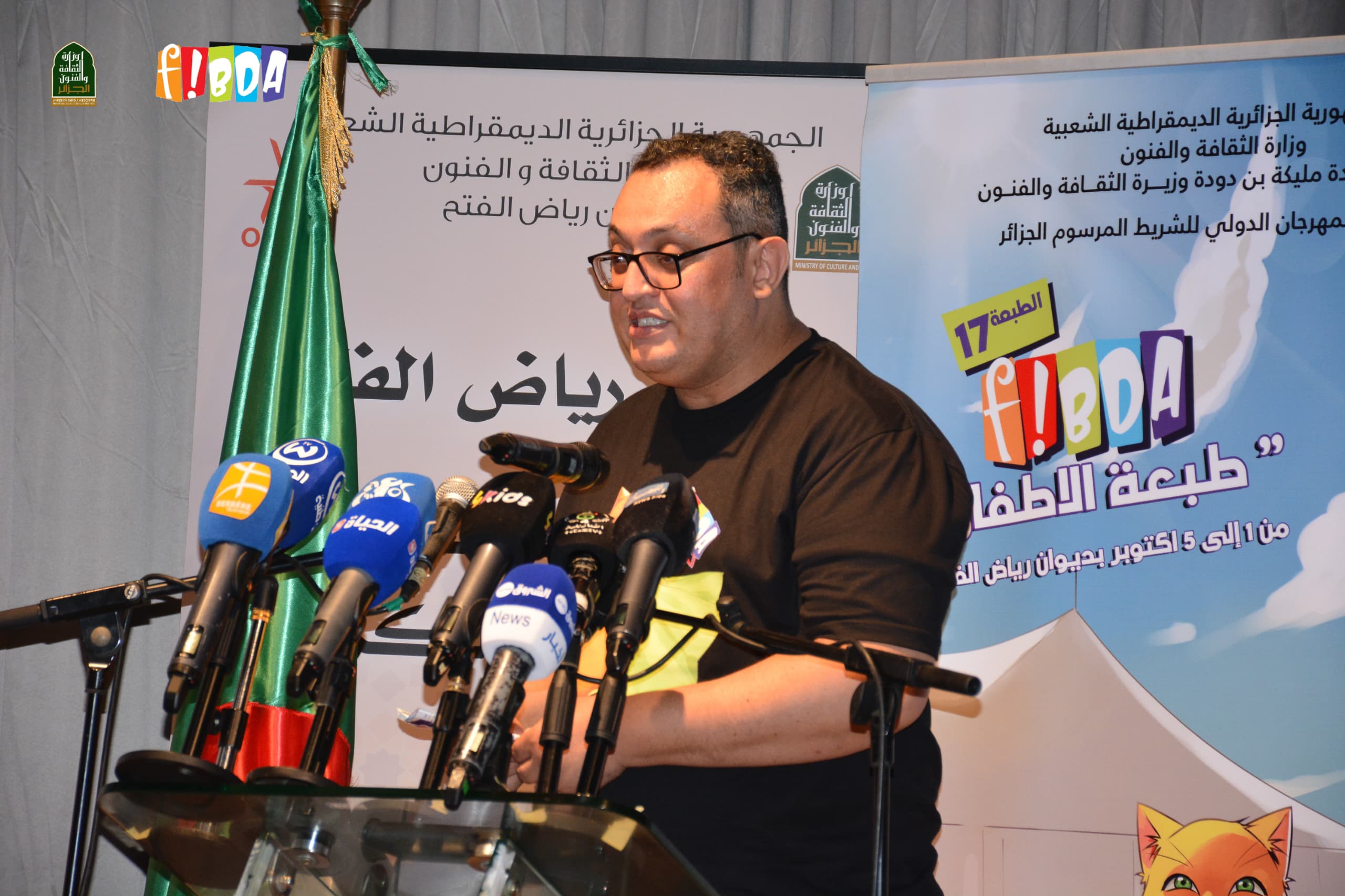As the 17ᵗʰ Algiers International Comics Festival (FIBDA) wraps up, organizers are hailing an exceptional edition marked by record attendance, vibrant exchanges, and critical debates on the future of the ninth art.
Festival commissioner Salim Brahimi described the event as « truly outstanding », highlighting the unprecedented turnout. « If you visited the Festival, you probably noticed the massive crowds, especially over the weekend », he said. While the opening days were quieter due to the school calendar, the pace quickly picked up. « By Friday, the rush was such that we had to temporarily close the gates to regulate the flow of visitors. »
The festival ended in a festive and joyful atmosphere, celebrating the richness and diversity of comics while also honoring Palestine. A special exhibition featured works by Palestinian artists, some based in Gaza and others abroad. Many of them were unable to travel because of restrictions imposed by certain Western countries, but their pieces were displayed in Algiers as a tribute to their resilience and artistic strength.
Expanded Program and Global DialogueThis year’s edition introduced several new elements to broaden the festival’s scope. Panels and workshops tackled key themes, including the growing impact of artificial intelligence on the creative industries. The organizers also strengthened international collaborations, expanded the children’s area, and multiplied participatory activities.
« FIBDA has truly become a space for dialogue and creativity where emerging talents can meet established artists », Brahimi noted. « Our goal is to continue honoring this art form that inspires and unites us: comics. »
AI: A New Ethical and Artistic ChallengeAmong the topics that sparked the most debate was artificial intelligence. Brahimi acknowledged that AI is causing widespread concern among artists, not only in comics but across various creative fields. « Some fear losing their jobs, and in some industries, like storyboarding, inking or dubbing, this is already happening », he explained, pointing to a rise in strikes within these sectors.
The festival hosted a dedicated discussion to address the growing difficulty of distinguishing between human-made artworks and AI-generated or AI-altered creations. « Even in our competitions, the question is becoming crucial: how can we tell what was created by a machine? » Brahimi said. He emphasized that the festival’s regulations will need to evolve to keep pace with these technological shifts.
